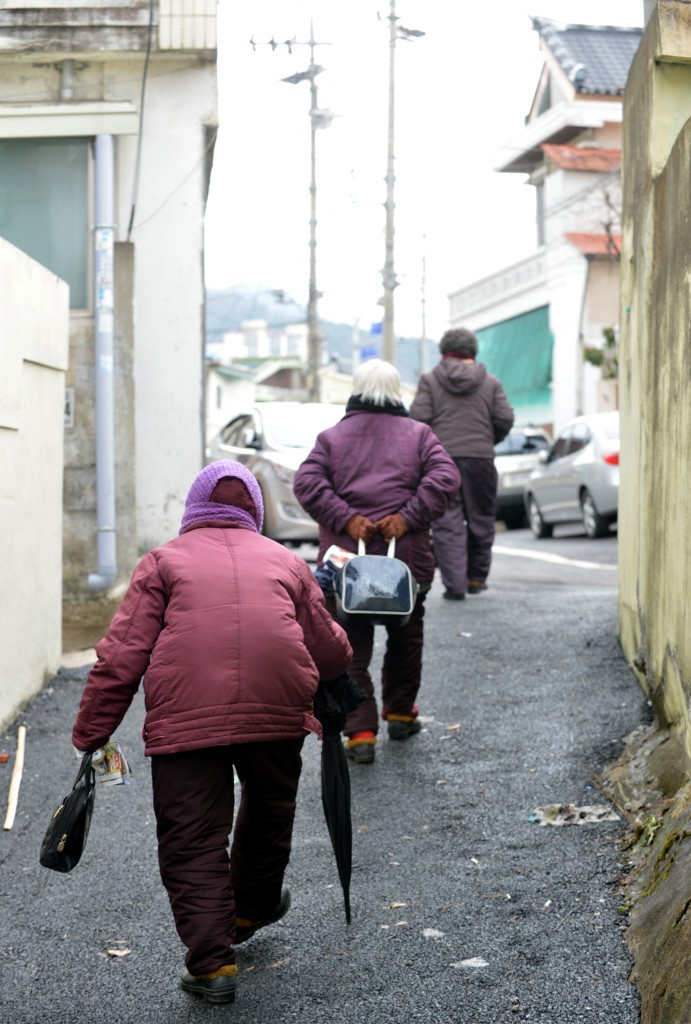- California Assembly OKs highest minimum wage in nation
- S. Korea unveils first graphic cigarette warnings
- US joins with South Korea, Japan in bid to deter North Korea
- LPGA golfer Chun In-gee finally back in action
- S. Korea won’t be top seed in final World Cup qualification round
- US men’s soccer misses 2nd straight Olympics
- US back on track in qualifying with 4-0 win over Guatemala
- High-intensity workout injuries spawn cottage industry
- CDC expands range of Zika mosquitoes into parts of Northeast
- Who knew? ‘The Walking Dead’ is helping families connect
S. Korea has fastest aging population among advanced economies

In terms of the pace of aging, using 1970 as the base year, South Korea ranked first, with the elderly population growing four times up until 2013, which is more than double the OECD average of 1.6 times, data showed.
(Yonhap) — South Korea has shown the most extreme demographic shift in the last four decades with its population aging at the fastest pace among advanced economies, data showed Tuesday.
Koreans aged 65 or older accounted for 12.2 percent of the total population of about 50 million, the 30th-highest proportion among the populations of the 34 members of the Organization for Economic Cooperation and Development (OECD), according to an analysis by the Korea Institute for Industrial Economics and Trade (KIET).
But in terms of the pace of aging, using 1970 as the base year, South Korea ranked first, with the elderly population growing four times up until 2013, which is more than double the OECD average of 1.6 times, data showed. Japan was No. 2 with 3.6 times, and Finland followed with 2.1 times.
The proportion of children aged 0-14 years came to 14.7 percent, which is nearly half of top-ranked Mexico’s corresponding figure of 28.4 percent and below the OECD average of 17.4 percent, the KIET said.
The proportion of the economically productive population aged 15-64 years was 73.1, surpassing the OECD average of 66.6 percent.
“As South Korea’s birth rate has fallen at the fastest pace among the OECD countries, the decreasing number of economically productive population and retirement of baby boomers could add uncertainties to the nation’s future,” the KIET said.
















Pingback: How will population decline and technological unemployment affect each other in the next 10-15 years? | NYC Startup News